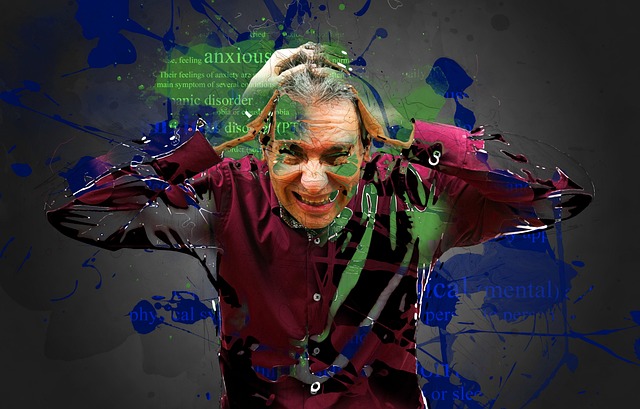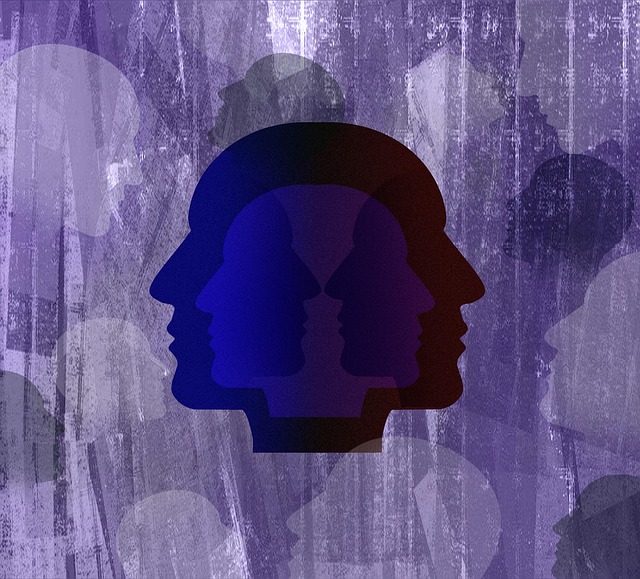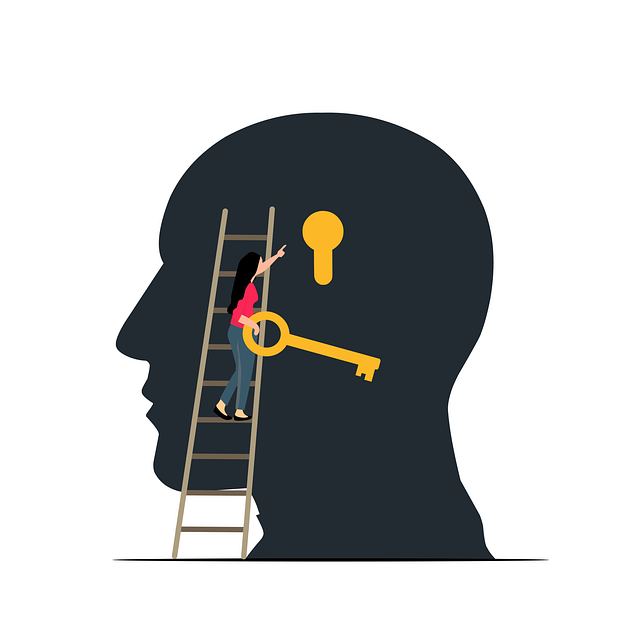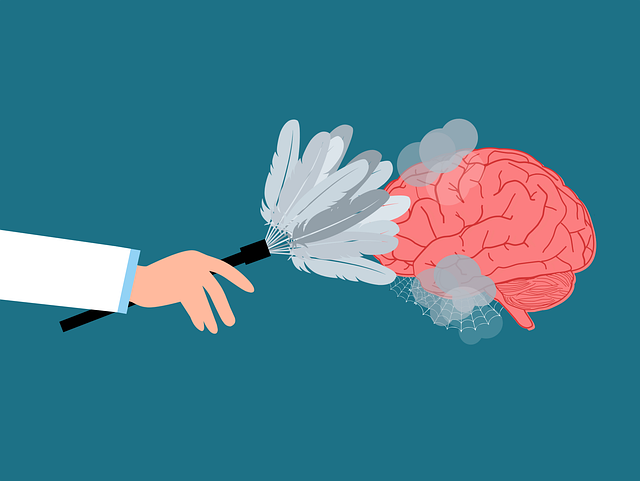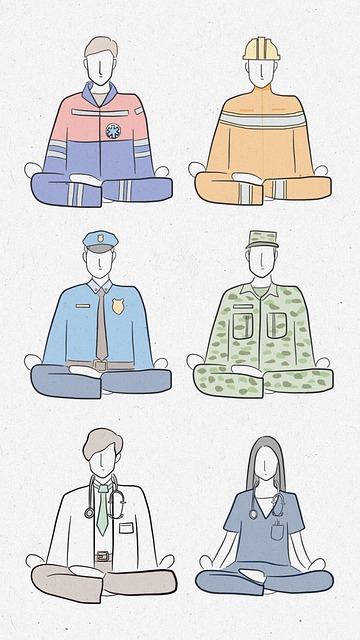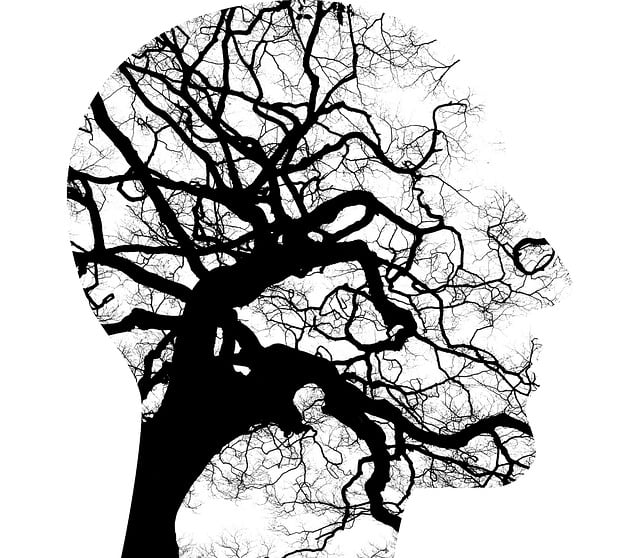Cultural diversity significantly impacts mental healthcare, especially for adults with neuro disorders. The Mental Wellness Podcast Series Production addresses this gap by promoting culturally sensitive self-care practices and emotional well-being techniques, enhancing therapy effectiveness and patient outcomes. Effective therapy requires therapists to be trained in recognizing and respecting diverse cultural beliefs, values, and practices, creating inclusive environments through active listening and incorporating culturally relevant techniques. By integrating mindfulness meditation and Mind Over Matter Principles, therapists can build trust, strengthen the therapeutic bond, and provide tailored care for adults with neuro disorders.
Mental healthcare practices must embrace cultural sensitivity to address the unique needs of diverse populations. This article explores how understanding cultural diversity shapes mental health outcomes, highlighting significant barriers that prevent access to care for marginalized communities. We delve into strategies for therapists to incorporate cultural competency during sessions and offer effective treatment approaches for adults with neuro disorders, ensuring inclusive and tailored support. By addressing these aspects, we aim to enhance the accessibility and quality of mental healthcare services.
- Understanding Cultural Diversity and Its Impact on Mental Health
- Barriers to Accessing Mental Healthcare for Diverse Populations
- Incorporating Cultural Sensitivity into Therapy Sessions
- Strategies for Providing Effective Treatment for Adult Neuro Disorders in a Culturally Competent Manner
Understanding Cultural Diversity and Its Impact on Mental Health

Cultural diversity is a rich and complex aspect of modern society, with individuals from various ethnic, racial, religious, and socio-economic backgrounds contributing to our communities. In mental healthcare, understanding this diversity is paramount as it significantly influences an individual’s experience of mental health and their approach to therapy. Every culture carries unique beliefs, values, and practices related to emotional expression, coping mechanisms, and the perception of mental illness, which can greatly impact the effectiveness of traditional treatment methods.
For instance, when working with adults with neuro disorders from diverse cultural backgrounds, therapists must be mindful of these differences. What may be considered a healthy coping mechanism in one culture could be perceived as inappropriate or even harmful in another. The Mental Wellness Podcast Series Production can play a vital role in bridging this gap by providing platforms for sharing Self-Care Practices and Emotional Well-being Promotion Techniques that are sensitive to cultural nuances. By embracing cultural sensitivity, mental healthcare professionals ensure more inclusive and effective therapy for adults with neuro disorders, fostering better outcomes and strengthening the therapeutic bond.
Barriers to Accessing Mental Healthcare for Diverse Populations

Accessing mental healthcare services can pose significant challenges for diverse populations, often creating barriers that hinder their journey towards healing and wellness. One of the primary issues is cultural mistrust and a lack of understanding between providers and patients from different ethnic, racial, or social backgrounds. Stigma surrounding mental health, especially in communities with limited exposure to such discussions, contributes to individuals keeping their struggles private, preventing them from seeking the therapy they need for conditions like depression prevention or managing neuro disorders.
Language acts as another obstacle, where non-native speakers might face communication difficulties, affecting their ability to express their emotions and concerns effectively. This language gap can lead to misdiagnosis or inadequate treatment plans. Moreover, economic disparities and limited access to culturally competent healthcare providers further exacerbate the challenges for marginalized communities. Emotional intelligence among healthcare professionals is crucial; they must be trained to recognize and respect diverse cultural expressions of pain, distress, and suffering, thereby fostering an environment where patients feel safe and understood, encouraging them to openly discuss their mental health concerns, including burnout prevention strategies.
Incorporating Cultural Sensitivity into Therapy Sessions

Incorporating cultural sensitivity into therapy sessions is a vital aspect of providing effective mental healthcare, especially when treating adults with neuro disorders. Therapists should be trained to recognize and respect diverse cultural beliefs, values, and practices, tailoring their approaches to create a safe and inclusive environment for clients from various backgrounds. This involves actively listening to patients’ unique experiences, understanding the impact of cultural identities on mental health, and incorporating culturally relevant techniques to enhance emotional well-being promotion. For instance, therapists might integrate traditional healing practices or community outreach program implementations based on clients’ cultural preferences.
By fostering a culturally sensitive approach, therapists can facilitate meaningful connections with adult neuro disorder patients. This could involve encouraging the development of self-care routines that align with individuals’ cultural traditions, ensuring their mental health journeys are holistic and respectful of their heritage. Such practices not only improve clinical outcomes but also empower clients to navigate their emotional challenges while preserving their sense of identity and belonging.
Strategies for Providing Effective Treatment for Adult Neuro Disorders in a Culturally Competent Manner

Providing effective therapy for adults with neuro disorders requires a deep understanding and integration of cultural sensitivity principles. By incorporating mindfulness meditation as part of treatment, therapists can foster a safe and non-judgmental space that resonates with individuals from diverse backgrounds. This approach aligns with Mind Over Matter Principles, emphasizing the mind’s ability to transform and adapt.
Cultural sensitivity in mental healthcare practice involves actively listening to and valuing clients’ unique perspectives, beliefs, and experiences. Therapists should be trained to recognize and navigate potential cultural barriers, ensuring that interventions are tailored to meet individual needs. This personalized approach not only enhances treatment outcomes but also builds trust and strengthens the therapeutic alliance, ultimately improving the overall mental healthcare experience for adults with neuro disorders.
Cultural sensitivity is paramount in mental healthcare, as it can significantly impact treatment outcomes. By understanding the diverse cultural backgrounds of patients and addressing barriers to access, practitioners can create inclusive environments that foster trust and effective communication. Incorporating culturally sensitive practices into therapy sessions ensures tailored care for all individuals, especially those from underrepresented populations. Moreover, strategies focused on providing culturally competent treatments for adult neuro disorders revolutionize support systems, enabling better management and improved quality of life for diverse patients.
